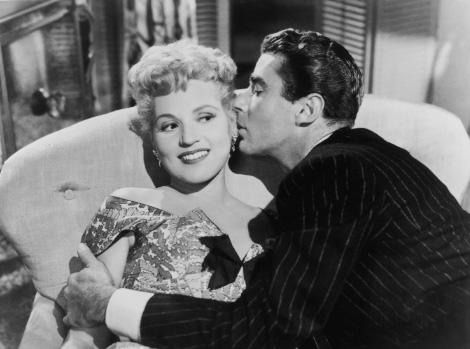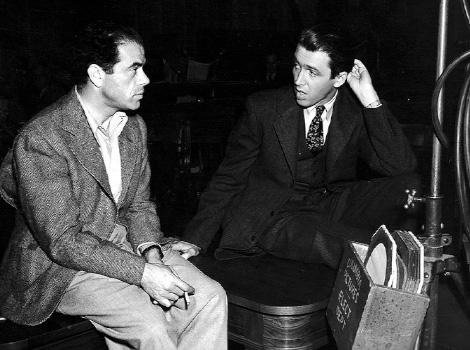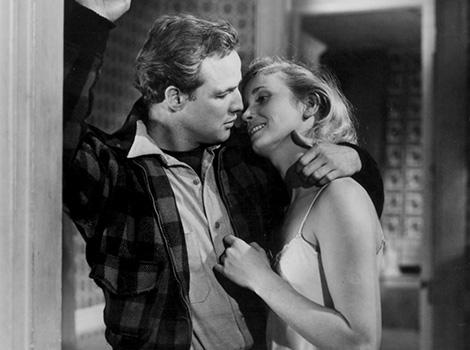TCM CLASSIC FILM FESTIVAL 2024: Film Review
Part I: The “Coachella of Classic Movies” Rides Again at Hollywood
By Ed Rampell
As a film historian/critic, Turner Classic Movies is my favorite TV channel, and I eagerly look forward to its annual film festival featuring screenings, celebrities, panels and parties devoted to vintage films at – where else? - Hollywood. This year, the TCM Classic Film Festival turned 15 years old with the central theme: “Most Wanted: Crime and Justice in Film.” This is appropriate, because I have been the victim of a cultural crime perpetrated by my cable TV provider, Spectrum/Charter, which since last September has failed to adequately provide me with proper service and unobstructed viewing access to TCM. Although I subscribe to my favorite channel, for eight months whenever I attempt to watch TCM, every two minutes or so, the image on the screen freezes and there’s no sound, rendering it impossible to simply watch movies without constant disruption of the TCM channel. This, despite the fact, that I’ve made innumerable complaints to Spectrum/Charter, which has proven to be totally incompetent by repeatedly failing to resolve this technical issue, which company repairmen have told me afflicts others in my L.A.-area city. Of course, on the other hand, Spectrum/Charter’s extremely expense bill never fails to arrive on time, and despite my requests, not only has Spectrum/Charter failed to fix this tech problem but has refused to compensate me (to date) for eight months of poor service, making it impossible to watch classic movies on my favorite channel.
So, this year I looked forward to the April 18-21 TCM Classic Film Festival more than ever – at least I’d be able to enjoy TCM for four days without interruption, and as usual, I wasn’t disappointed. After picking up my press pass, I squeezed into Club TCM, which converts the Blossom Room at the Hollywood Roosevelt Hotel – site of the very first Academy Awards ceremony in 1929 – where Festival panels and receptions take place for passholders. There, Bruce Goldstein, founder and co-president of Rialto Pictures and Founding Repertory Artistic Director of New York’s Film Forum, hosted “So You Think You Know Movies.” As part of this cinematic trivial pursuit game, clips featuring George Chakiris appearances as an uncredited extra in scenes from 1953’s Gentlemen Prefer Blondes with Marilyn Monroe, 1954’s Brigadoon, etc., were screened. To the audience’s delight, Chakiris, who won the Best Supporting Actor Oscar for portraying Bernardo in 1961’s West Side Story, became the first of many screen notables to make a personal appearance at the star-studded event which celebrated the 30th anniversary of TCM’s going on the air in 1994.
The biggest conundrum facing movie lovers at the TCM Classic Film Festival is deciding which of up to six events being presented concurrently to attend. After the welcome reception also in Club TCM, I had to decide whether to see 1985’s Clue poolside under the stars at the Roosevelt (which is always good fun) or to cross Hollywood Blvd. to see the 2024 documentary Made In England: The Films of Powell and Pressburger, directed by David Hinton, at the Chinese Multiplex. Being a film historian/critic, I opted for the edifying over escapist entertainment, and I am glad I did. The doc’s British co-producers Nick Varley and Matthew Wells spoke before the curtain lifted for this 131-minute nonfiction look at the talents behind often idiosyncratic English pictures, such as Black Narcissus (1947) and The Red Shoes (1948).
Intriguingly, Made In England is as much about Martin Scorsese as it was about Michael Powell and Emeric Pressburger, who professionally and personally influenced the Italian-American auteur (particularly Powell). The extremely educational documentary unfolded details about the careers and private lives of the duo who gave the world The Archers film company, and it left me wanting to see more of their work, especially 1946’s A Matter of Life and Death starring David Niven and Kim Hunter. Interestingly, in his commentary Scorsese seems to warn viewers from being obsessively fixated on reel life, as opposed to real life, to focus on one’s lived experience offscreen and on reality with flesh and blood people, not focusing on filmic phantoms and celluloid spirits. Scorsese sounds like he’s advising cinephiles that there’s more to life than going to and making movies. (An apropos message for TCM audiences, who applaud like crazy during credit sequences.)
One of the great things about the TCM Classic Film Festival is that it introduces pictures to rank and file film fans or even historians/critics like your humble scribe that we have never heard of before. A case in point is George Cukor’s 1954 It Should Happen to You, which was revived to celebrate Columbia’s 100th birthday and the movie’s 70th anniversary. TCM host Alicia Malone and SNL alum Julia Sweeney introduced this charming rom-com, the big screen debut of two-time Oscar winner Jack Lemmon. Interestingly, he portrays a documentarian opposite a beguiling, effervescent Judy Holliday.
Her Gladys Glover character is a sort of forerunner of Angelyne, Hollywood’s busty billboard queen. A girdle model from a smalltown in Upstate New York, Gladys is disappointed that she’s failed to attain fame in Manhattan, and is just another anonymous face lost in the crowd. This movie morality tale, which also co-stars Peter Lawford as a pre-Mad Men Madison Avenue advertising agency hot shot, poses a thought-provoking question, especially for today’s celebrity-obsessed culture. Written by Garson Kanin, this film fable asks what’s more important: Being famous or being in love? Hilarity ensues.
Speaking of Columbia Pictures, Matthew Wells’ 2023 documentary Frank Capra: Mr. America, about the man who may be that studio’s most influential director, was also screened to commemorate Columbia’s centennial. Wells and academic/author/film historian Jeanine Basinger – who received this year’s Robert Osborne Award named after TCM’s late host – introduced the Capra biopic. The nonfiction film followed Capra’s life as a Sicilian immigrant who, Horatio Alger-like, rose from humble circumstances to achieve the American Dream. Capra became one of the Golden Age of Hollywood’s titans, directing a string of hits during the Depression and New Deal era, then a series of Why We Fight documentaries intended to persuade auds to support the war effort during WWII. With movies like 1936’s Mr. Deeds Goes to Town, 1939’s Mr. Smith Goes to Washington and 1941’s Meet John Doe, Capra seemed to extoll the virtues of the little guy in populist pictures lauding democracy, while his Second World War docs embodied anti-fascism. Thanks to his optimistic, upbeat take on Americanism and life in general, he became one of the few directors to inspire an adjective: “Capraesque.” (In a similar vein, “Hitchockian” refers to something suspenseful.)
Much of this is familiar territory, but I wasn’t prepared for the apparently scurrilous role Capra played during the Hollywood Blacklist. If I understood correctly, according to the documentary, when Capra was reproached for having creatively collaborated with leftwing screenwriters, decades later, as the Red Scare raged, Capra claimed that he did not know they were leftists. Although the doc doesn’t specifically mention him, these scribes include Sidney Buchman, who was a card carrying, dues paying member of the Communist Party USA, including in all likelihood when he co-wrote Mr. Smith Goes to Washington. (During the Blacklist Congress finally had the chance to exact revenge upon Buchman for co-writing that paean to democracy.) Onscreen, the great film historian Joseph McBride alleges that Capra made “anti-Semitic” and “racist” comments. American Studies Professor Eric Smoodin goes on to compare Capra to director Elia Kazan, who, according to Victor Navasky’s seminal book on the Blacklist, Naming Names, was considered to be “the quintessential informer.”
Kazan and screenwriter Budd Schulberg both squealed to the House Un-American Activities Committee in the early 1950s, informing on Hollywood progressives to Congress, which enabled these “friendly witnesses” to continue working (while blacklisted “unfriendly” talents were banned from making movies). To justify their informing, Kazan and Schulberg made a movie that lauded betrayal and snitching. That picture, 1954’s multiple Oscar-winning On the Waterfront – starring Marlon Brando as a “heroic” stool pigeon – was screened April 20 at the TCL Chinese Theatre IMAX. Kazan and Schulberg weren’t “contenders” – they were just informers, “bums” who named names to HUAC.
In that great Tinseltown tradition, there will be a sequel to this article about the 2024 TCM Classic Film Festival. Stay tuned!
For more info: https://filmfestival.tcm.com/ .



